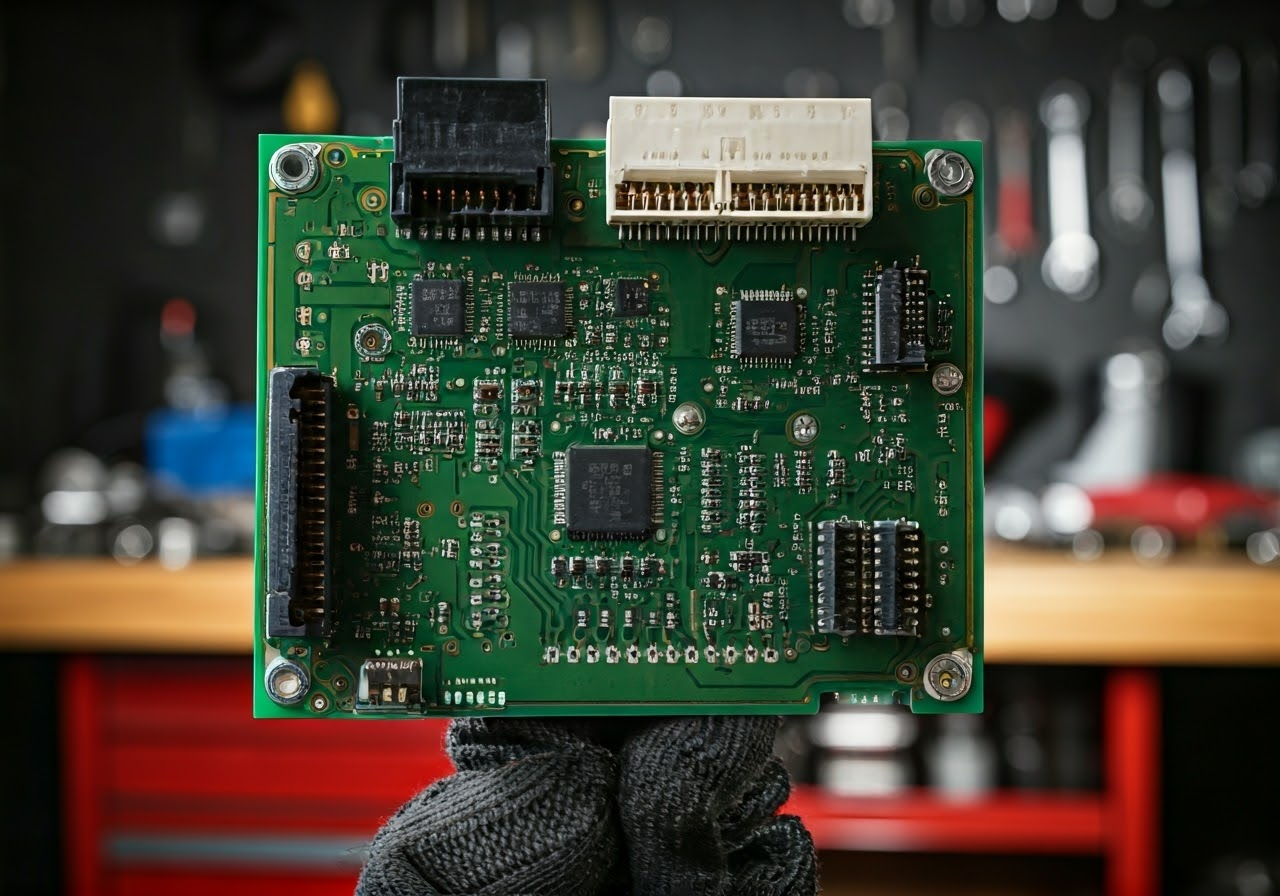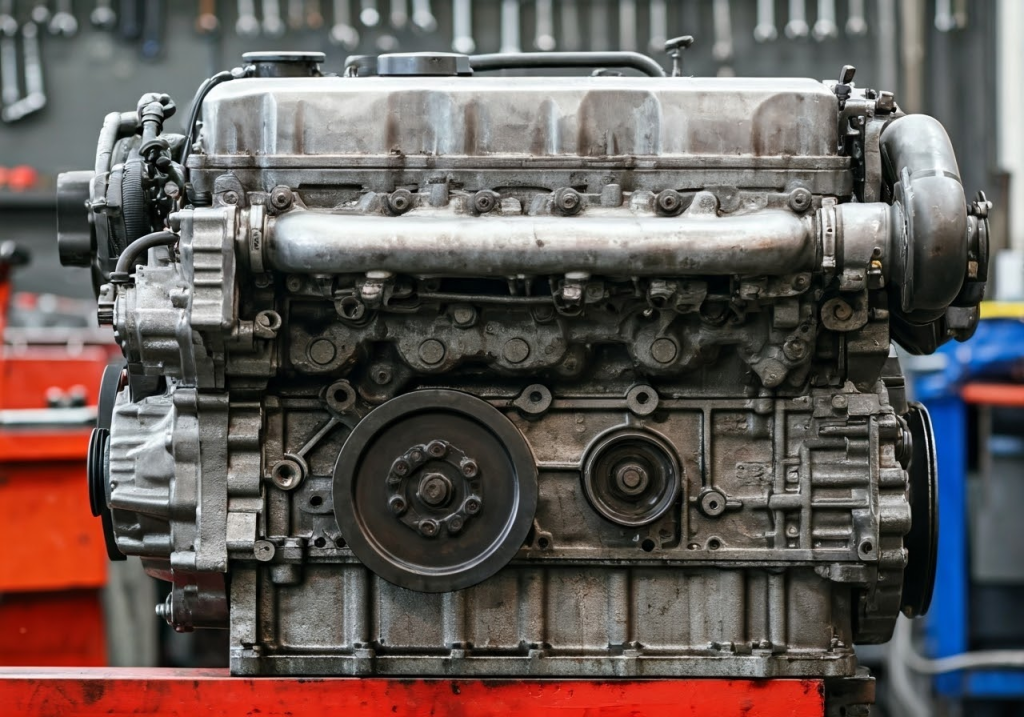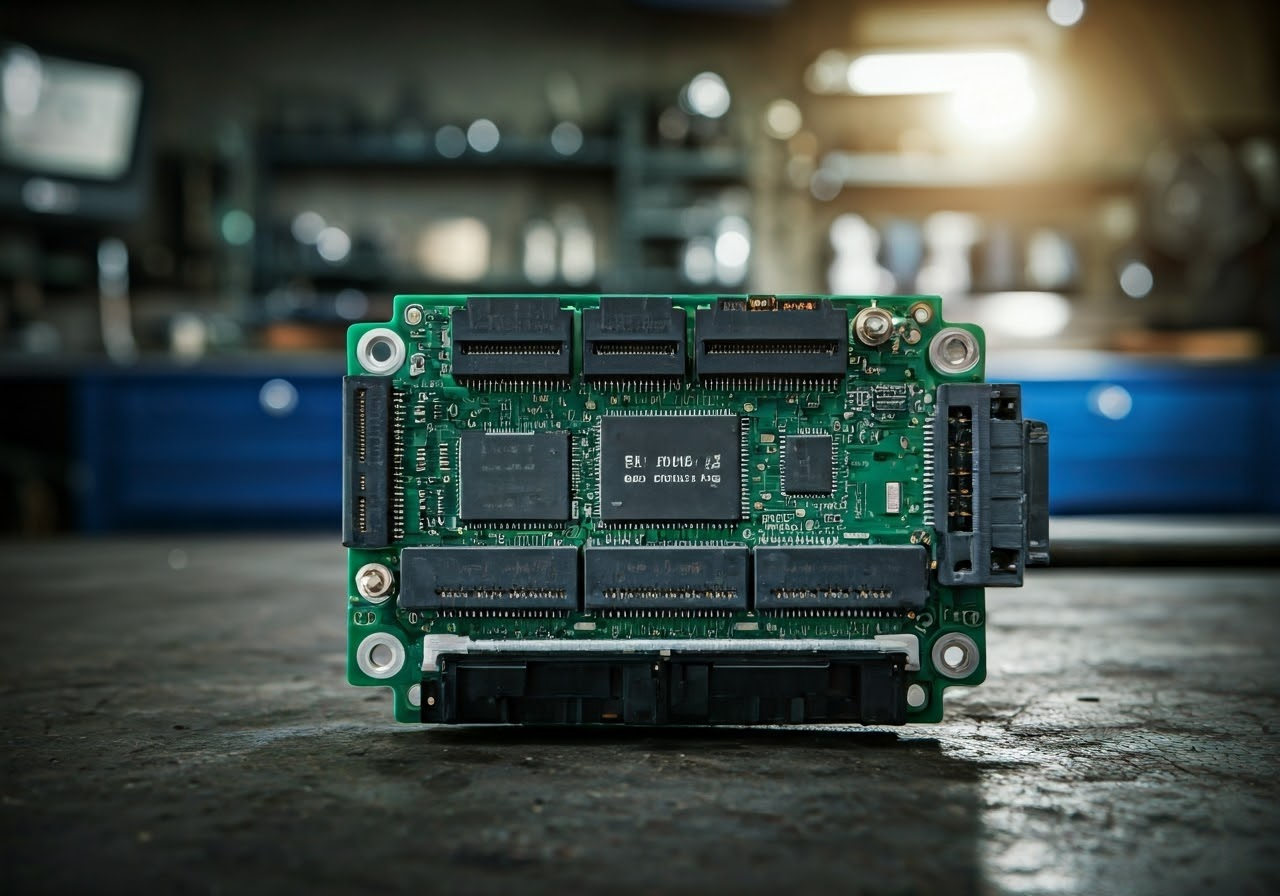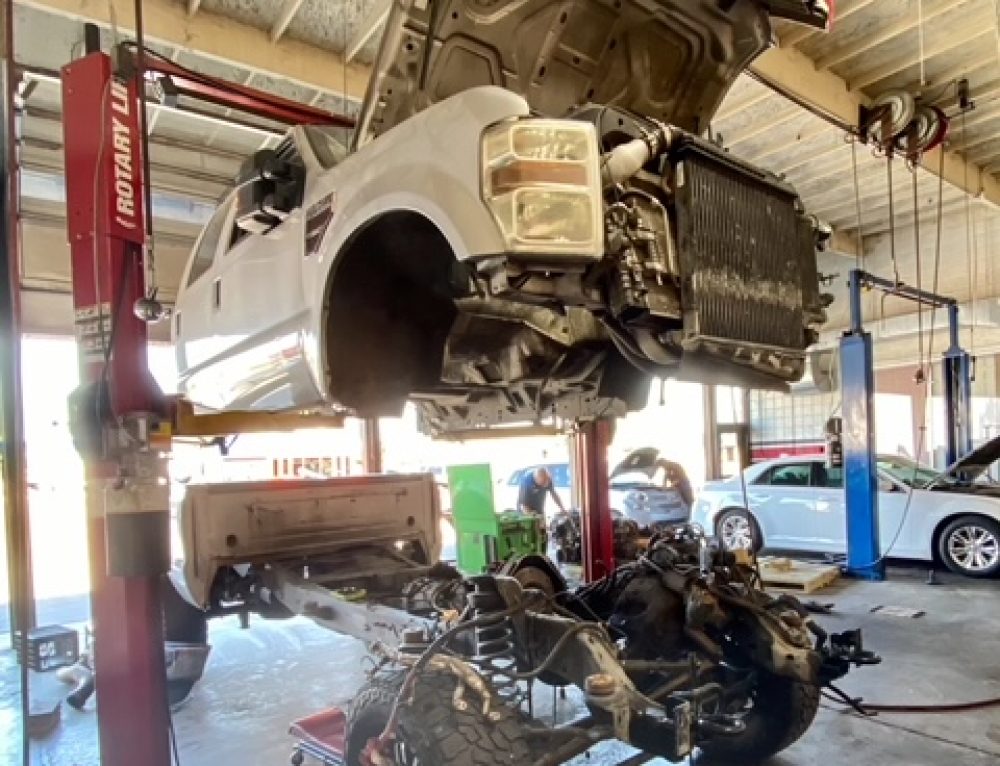Your Dodge diesel depends on its Engine Control Module (ECM) to control fuel injection and engine timing. When it malfunctions, the whole system suffers.
Without a good working ECM, your truck may not function properly, fail emissions tests, or stop working entirely. And guess what? ECM issues can mimic other problems. This can cause the Dodge diesel ECM repairs to be misdiagnosed.
Don’t get stuck! Join us in this blog as we show you everything you should know about Dodge diesel ECM repair. This will help you identify issues on time and repair them immediately.
Are you ready? Let’s begin!
Key Highlights
- Identifying ECM problems will require a combination of tools and the right techniques for diagnosis.
- Contact a professional technician for your Dodge diesel ECM repairs.
Understanding the Role of the ECM in Dodge Diesels

The ECM in Dodge diesel trucks acts as the brain behind the mechanics. It controls the complex operations in your diesel engine. This includes ensuring the optimal air-fuel mixture and regulating ignition timing for better engine operations.
It is a sophisticated component that affects the efficiency of your vehicle. This also includes its power delivery and emissions. Without a functioning ECM, the performance of a truck will be unpredictable. It will also cause mechanical failures.
You should visit a Dodge diesel ECM repair technician. This is because an unresolved ECM issue can cause costly repairs.
That’s also why proper diagnostics and timely intervention are important for truck owners. Especially those who want to improve the performance of their vehicles.
What is an ECM, and how does it work?
An Engine Control Module (ECM) is an onboard computer responsible for orchestrating the critical functions of your Dodge diesel truck’s engine. It works by gathering data from various sensors to monitor parameters like air-fuel ratio, engine temperature, and ignition timing.
The ECM processes this data and sends specific instructions to the components in your engine. This includes ignition coils, fuel injectors, and transmission systems. So that the engine runs efficiently.
If a sensor provides faulty information, the ECM will adjust its calculations. And guess what? This will cause wrong operations.
That’s not all. This module also ensures compliance with emissions standards. It does this by controlling the variables that influence combustion efficiency.
These multi-functional capabilities help the ECM keep your Dodge truck reliable on the road. It also ensures you enjoy maximum operational efficiency.
Importance of ECM for vehicle performance and emission control
The ECM helps in improving the performance of your vehicle as it ensures smooth operation between multiple systems. Without it, components like ignition coils or fuel injectors may fail to work correctly. This will compromise the efficiency and reliability of your engine.
It also contributes to effective emission control. It does this by regulating the air-fuel mix for better combustion.
A malfunctioning ECM may allow excessive pollutants, such as carbon monoxide or particulate matter, to enter the atmosphere. This negatively impacts emission-test results and environmental standards compliance.
Likewise, the ECM aids the Powertrain Control Module (PCM) in managing transmission and engine operation cohesively. They work together to prevent issues, especially in torque delivery, engine speed, and fuel consumption.
This provides truck owners with sustainable and high-performing drives. That is why you should visit a reputable technician for your Dodge diesel ECM repairs when it stops working properly.
Common Symptoms of ECM Failure in Dodge Diesels

Most common issues of ECM failure for Dodge Diesel trucks usually show themselves through a range of symptoms. This includes poor engine performance, stalling, or irregular ignition patterns.
These can signal ECM issues. That’s not all. Persistent check-engine lights are also problems associated with ECM failure. Over time, truck drivers may also notice a decrease in their fuel efficiency. And the truth? This contributes to increased emissions.
Identifying these symptoms on time is very important. It helps truck owners to prevent severe mechanical damage. A Dodge diesel ECM repair technician will properly troubleshoot your system.
They will use both manual inspections and diagnostic tools to identify the problem. This helps to save you time and avoid unnecessary costs linked to greater system failures.
Engine performance issues and irregularities
When the Engine Control Module begins to fail, one of the first issues drivers encounter is poor engine performance and irregularities. Common signs include stalling or hesitation during acceleration. Other issues include:
- Faulty ignition coils may cause spark delivery. This reduces engine smoothness.
- Wrong sensor readings can affect engine timing or air-fuel ratios. This causes misfires.
- Malfunctions in the ECM may impair its ability to handle key operational data. This affects the performance of your system.
These issues are inconvenient. They also compromise the reliability of your truck. Unaddressed ECM issues will increase your vehicle downtime and repair costs.
You need proper checks and diagnostics by a professional Dodge diesel ECM repair technician. They will help you improve the longevity of your truck.
Reduced fuel efficiency and increased emissions
ECM failure usually leads to reduced fuel efficiency and high emission output. A failing module can disrupt the air-to-fuel ratio calculations. This forces the engine to burn excess fuel unnecessarily.
Fuel inefficiency will increase your bill at the pump. It also places environmental compliance at risk. When emission control mechanisms fail due to ECM issues, pollutants like carbon monoxide escape unchecked into the environment.
These problems will build up over time. And guess what? They will reduce the performance of your vehicle over time.
Routine ECM diagnostics and maintenance reduce the cost of operation and your carbon emissions. Truck owners can prevent emissions-related penalties by ensuring that the ECM functions optimally.
Step-by-Step Guide to Diagnosing ECM Problems
Diagnosing ECM problems starts with understanding their symptoms. This includes poor engine behavior or persistent warning lights. Inspecting basic vehicle components manually and using diagnostic tools helps truck owners spot potential issues on time.
A step-by-step approach identifies faulty modules. This will also help you spot incorrect sensor readings more efficiently. Truck owners can interpret diagnostic codes that reveal ECM-related errors.
Quick diagnosis ensures your Dodge diesel ECM repairs are done on time. It helps you to avoid severe mechanical failures. These can affect the way your vehicle works or increase your repair costs.
Interpreting diagnostic codes and what they mean
Diagnostic codes provide important steps to identify ECM problems. Cummins engines usually generate error codes like “P0340.” This indicates sensor faults linked with engine control.
Understanding these codes requires using tools like OBD-II scanners. They display relevant information from the truck’s ECM system. For example, codes relating to fuel injectors or coil ignition problems show deeper operational issues.
Truck owners capitalizing on diagnostic codes can avoid unnecessary repairs related to ECM issues. They can also consult manuals or seek professional services. This helps them to ensure accurate interpretation and resolution of code errors.
Here in Arizona, Phoenix Diesel Repair is the right auto shop for your Dodge diesel ECM repairs. We have expert technicians who will give you quality and affordable services. We can help! Contact us now!
Frequently Asked Questions
How do I know if my Dodge diesel ECM needs repair?
Common signs that your Dodge diesel ECM may need repair include poor engine performance, stalling, irregular ignition patterns, and a persistent check engine light. If you’re experiencing reduced fuel efficiency or increased emissions, it’s a good idea to consult a technician for Dodge diesel ECM repair.
Why is it important to get Dodge diesel ECM repairs done on time?
Timely Dodge diesel ECM repair is crucial to prevent further engine issues, reduce repair costs, and improve fuel efficiency. Ignoring ECM problems can lead to extensive mechanical damage, higher emissions, and an overall decrease in vehicle performance.
Can a faulty Dodge diesel ECM affect my truck’s fuel system?
Yes, a faulty Dodge diesel ECM can disrupt fuel system performance. The ECM regulates fuel delivery and ignition timing, and when it malfunctions, you may experience erratic fuel pressure, misfires, and poor fuel efficiency. Dodge diesel ECM repair can help restore proper function and performance.
How can I prevent ECM failure in my Dodge diesel?
Regular maintenance and diagnostics are the best way to prevent ECM failure in your Dodge diesel. By scheduling routine inspections and addressing potential issues early, you can avoid costly Dodge diesel ECM repairs and ensure your engine continues to perform optimally.
What are the common causes of Dodge diesel ECM failure?
Dodge diesel ECM failure can be caused by faulty sensors, electrical issues, or extreme heat exposure. If you notice any of the symptoms of ECM problems, it’s essential to seek professional Dodge diesel ECM repair to avoid long-term damage.






